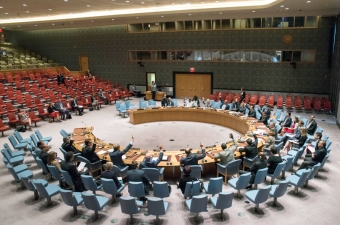The United Nations (UN) Security Council yesterday unanimously agreed to amend the Tribunal's Statute through the adoption of Resolution 2306 (2016), which adds a new Article 13 quinquies to the Statute in relation to the appointment of an ad hoc judge. The amendment allows the UN Secretary-General to appoint a judge to the Tribunal’s Appeals Chamber on an ad hoc and temporary basis, at the request of the President of the ICTY and after consultation with the President of the Security Council.
On 29 July 2016, the President of the ICTY, Judge Carmel Agius brought to the attention of the Security Council that there are insufficient permanent judges at the Tribunal to deal with any interlocutory appeals from the ongoing trial proceedings in the Mladić case. As it stands, three of the Tribunal’s seven remaining judges are assigned to the Mladić trial and would be conflicted on appeal. Therefore, it would not be possible to compose an Appeals Chamber bench of five judges in accordance with Article 12 of the Statute of the Tribunal.
The adoption of Resolution 2306 (2016) and resulting amendment of the Tribunal’s Statute is a response to this situation, and will ensure that the Appeals Chamber can be properly constituted in the event of any interlocutory appeals in the Mladić case, as and when they arise.
As stated in new Article 13 quinquies of the Statute, the ad hoc judge may be appointed if there is no permanent judge currently serving at the Tribunal available for assignment to the Appeals Chamber and all practical alternatives have been explored. The amendment specifies that the appointee must be a former judge of the ICTY or the International Criminal Tribunal for Rwanda, who is also a judge of the International Residual Mechanism for Criminal Tribunals.
The Tribunal's Statute was adopted by the Security Council in Resolution 827 (1993) on 25 May 1993 and has been subsequently amended as needed to enhance the Tribunal's judicial capacity.


